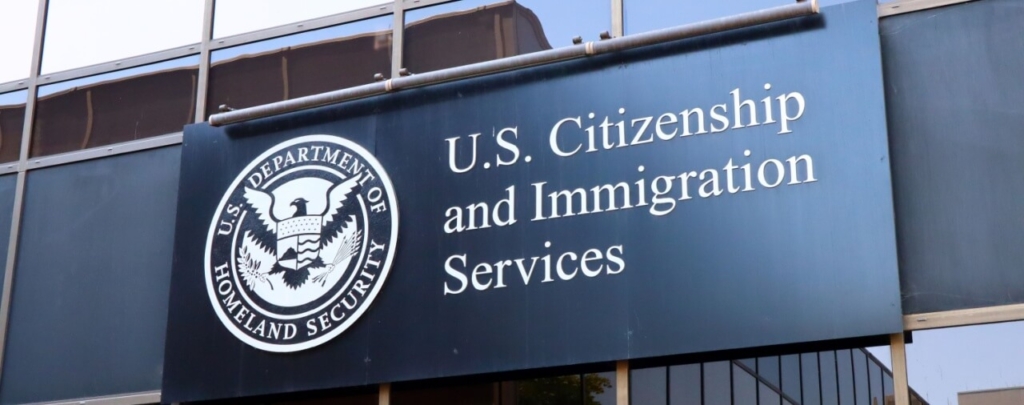Introduction: The Final Debate
On October 20, 2016, we witnessed the third and final Presidential debate between Hillary Clinton and Donald Trump. Few are likely to be disappointed with the knowledge that we will never have to watch these two candidates debate again (at least I hope). While the third debate again fell a bit short of the famed Lincoln-Douglas debates of 1858, it offered perhaps the most robust discussion of immigration in any of the three Clinton-Trump debates [see blog on the first]. It provided voters with one final opportunity to see the two underwhelming candidates for President clash on one of the most important issues facing the United States today. In this article, I will provide an overview of the debate on immigration in the final Presidential debate of 2016. In addition, I will discuss some other news and notes regarding the election, and explain how I intend to wrap up my series of blog posts on election issues and immigration [see directory].
Please note that we will rely upon the debate transcript compiled by Politico [link].1
The Supreme Court and Immigration at the Final Debate
While the final date still featured two dreadful candidates, the same cannot be said of the moderator, Fox News’s Chris Wallace. Wallace was assertive and fair, asking both candidates intelligent and piercing questions. It is not a stretch of the imagination to say that Clinton faced tougher questions from Wallace than she has from anyone during the entirety of the 2016 campaign. Unfortunately for Trump, he was not spared from Wallace’s incisive questioning either.
Wallace began the debate by asking the candidates about how they would fill any Supreme Court vacancies. In a lengthy discussion, Wallace used the word “constitution” nearly as many times (four) as both of the candidates combined (five). Those of us who are concerned with appointing Justices who are faithful to the Constitution may find this somewhat disconcerting. Unfortunately, the discussion yielded little insight beyond what I discussed regarding the Supreme Court in my first post in this series [see blog].
After a heated — if not highly informative — exchange on Supreme Court justices, gun rights (where we must note that Hillary Clinton seemed as ignorant about the Supreme Court’s 2008 landmark decision on Second Amendment rights in D.C. v. Heller, 554 U.S. 570 (2008) [PDF version] as Trump seems to be about the Constitution in general), and abortion, Wallace moved the discussion to immigration. Wallace’s question began a long exchange on immigration that was only interrupted by Trump again being baited by Clinton into defending Vladimir Putin.
Wallace’s question challenged both candidates for details. Regarding Trump, Wallace notes that he pledged to build a wall. Regarding Clinton, Wallace noted that she has offered no border security plan and seeks to offer a pathway to citizenship as part of a comprehensive immigration reform package within her first 100 days in office. After listing some of their positions, Wallace opened the floor for the candidates, beginning with Trump. In the forthcoming sections, I will analyze each candidate’s answers separately.
Donald Trump
Trump rambled about immigration issues in his usual stream-of-consciousness style, occasionally pointing to reasonable positions but generally showing that his understanding of immigration issues has not evolved much since I offered my criticism of him during the primaries [see blog]. A disproportionate amount of the post-debate coverage focused on his bizarre line, “we have some bad hombres here and we’re going to get them out.” I believe that more than enough ink has been spilled on that line, so I will focus instead on what we can divine in general from Trump on immigration in the debate.
Beginning with the good, Trump did manage to score proverbial points off Clinton with some of his attacks. For example, Trump began by attacking Clinton for supporting “amnesty,” and seeking to offer legalization to those here illegally while many who have endeavored to obtain status through lawful procedures are still waiting. This attack is salient on two fronts. Firstly, Clinton does in indeed support what can fairly be called “amnesty” in that she endeavors to provide an easy path to legalization without any guarantee of improved immigration enforcement. Secondly, Trump notes that Clinton’s proposal is not only harmful to immigration enforcement, but also unfair to those who seek status in the United States through lawful channels. Trump returned to this point later in the debate when he stated that,”[I]t’s very unfair. We have millions of people who did it the right way. … Very unfair that somebody runs across the border, becomes a citizen.”
Perhaps Trump’s most encouraging moment came at the end of a rambling discussion about drugs pouring over the border. Trump stated that “once the border is secured, at a later date, we’ll make a determination as to the rest.” Because this line immediately led into “bad hombres,” it was perhaps overlooked. However, here, Trump points to the very basic outline of my preferred immigration position [see blog]. Trump proposes border security first and a consideration of the disposition of those who are here illegally second. This is clearly distinguishable from Clinton’s proposal to enact border security measures and legalization simultaneously, and vastly preferable provided that the goal is to actually improve the immigration system such that the current problems do not repeat themselves.
Unfortunately, the rest of Trump’s discussion of immigration was, in general, incoherent. While Trump has a history of abandoning immigration positions, he remains wed to his asinine wall that will allegedly stretch across the entire U.S.-Mexican border. I have written consistent, as have many others, that this wall is not practical and not a real solution to our immigration problems. While Clinton is clearly not to be taken seriously on border security, she is indeed correct in noting that Trump’s wall is ridiculous. Trump endeavored to paint Clinton as an erstwhile supporter of his wall from a vote that she took in the Senate in 2006, but she was indeed correct in responding that the legislation proposed border fences in strategic areas rather than a wall across the entire border. Given that Trump’s primary enforcement proposal is the wall, his impassioned discussion of drugs and criminals “pouring” across the border rings empty. Even if one agrees with the direness of the current situation, one cannot be confident that Trump has much to offer on border security and immigration enforcement besides a fantasy wall and absurdist rhetoric that he is liable to abandon when it becomes convenient for him to do so.
Trump’s final line of attack was to go after Clinton for her support of “open borders.” After Clinton denied that she supports such a concept, somewhat disingenuously, she was confronted with a question from Wallace regarding a leaked transcript of one of her speeches where she expressed support for “open borders.” After quickly deflecting the question, Clinton pivoted to attacking Trump for supporting Russia’s hacking of her campaign’s emails. Rather than press the open borders issue, Trump instead decided his time was better spent defending Russia from Clinton’s correct allegations. That was effectively the end of the immigration portion of the debate.
Hillary Clinton
While Trump was generally subpar on immigration, it cannot be said that Clinton was much better. Clinton scored her proverbial points off Trump by attacking his proposals for mass deportations. Although Trump did not advocate that position in the third debate, he certainly did in securing the Republican nomination over vastly better-qualified candidates. Clinton specifically stated that she does not “want to rip families apart.” If you have been a long-time reader, you may recall that I used a similar phrase in offering a harsh critique of Trump’s immigration proposals in a candidate profile of him written last year [see blog]. As I discussed in the previous section, Clinton poked and prodded Trump over his proposal for a wall and correctly condemned his harsh rhetoric toward Mexican people. Finally, Clinton noted that Trump’s business record with regard to employing aliens who lack employment authorization is not in line with his pro-enforcement rhetoric.
However, as is often the case, Clinton fell flat when she was forced to offer her own proposals and defend them. First, while I agree with Clinton that Trump’s proposals for mass deportation are both implausible and outrageous, Clinton failed to acknowledge that being present without legal authorization is a violation of our immigration laws. Clinton suggests that resources will only be directed — or at least extremely narrowly focused — on removing “violent” people. While no one would argue that this should be the top priority, Clinton seems to have virtually no interest at all in enforcing the Immigration and Nationality Act’s provisions against nonviolent persons who cross the border illegally or overstay visas. In effect, Clinton creates a false dichotomy, suggesting that the only options are immediate legalization with very narrow enforcement priorities or Trump’s sometimes proposal for mass deportations.
Clinton revealed her hand, much like her running-mate Tim Kaine did in the Vice Presidential debate [see blog], when she cited to Ronald Reagan and the ill-fated 1986 “comprehensive immigration reform” effort [see blog]. Rather than learn from President Reagan’s well-intentioned mistake to sign legislation that simultaneously enacted new enforcement legislation and a substantial legalization program, Clinton proposes that we reenact it. Worse yet, Clinton failed to address Wallace’s correct assertion in his question that she has not actually offered any specifics on improving immigration enforcement and border security. Just as it is hard to come away from listening to Trump with the impression that he actually knows or believes anything about the immigration system, it is hard to come away from listening to Clinton with the impression that she has any interest in enforcement besides providing enough lip service and empty gestures to convince Congress to pass a significant amnesty program. The fact that she seeks to sign her albatross “comprehensive immigration reform” within her first 100 days in office hardly inspires confidence that she intends to patiently assess the success of new border security and enforcement measures before moving on to discussing a responsible plan for legalization.
Perhaps Clinton’s most politically effective moment was when she managed to avoid having to dwell on her statement supporting “open borders” by tempting Trump to launch into a long and bizarre defense of Vladimir Putin. This episode was just the latest in a long line of examples of Clinton deftly exploiting Trump’s utter lack of discipline to cause him to unwittingly transition from attacking her vulnerabilities to fixating on his own.
Debate Conclusion
Those of us who were disappointed in the proposals of both candidates on immigration found little reason to be reassured by the debate. The candidates were relatively effective in exposing each other’s weaknesses, and depressingly inept at making an affirmative case for sound immigration proposals. It can be said that we have learned little of the candidates on immigration that we did not know when I wrote my candidate profiles before the start of the primaries [see blog]. Trump has no consistent set of beliefs on immigration, and is an extremely shallow thinker on the actual issues. Clinton has gradually become more and more liberal on immigration for political expedience, to the point where she now seems to have virtually no interest in enforcing the laws at all. Trump offers the slight hope that he would appoint effective immigration administrators and let them do their jobs, but evokes the strong fear that his complete ignorance of public policy could actually make our immigration system worse. Clinton would clearly only support new enforcement measures in conjunction with legalization, so the best case scenario in her case would be that she shows more of an interest in enforcing the laws that we have, and whatever new laws are passed, than she has indicated in the campaign. To see my assessment of the risk/reward analysis with the two candidates, please see my blog on the depressing state of this election [see blog].
Other Notes
In my last post in the series [see blog], I discussed alternative candidates to Clinton and Trump. There, I noted that one of these candidates, Evan McMullin, appeared to have a chance to carry Utah. Since the publication of that article, two polls seem to have further confirmed McMullin’s strong position in the state [link].2 A poll from Emerson taken October 17-19 had McMullin in the lead in Utah 31-27 over Trump, with Clinton in third at 24%. A poll taken from October 12-18 by UtahPolicy/Dan Jones had Trump ahead of McMullin 30-29, with Clinton in third at 25%. As I noted in my previous posts, the mere fact that McMullin has a chance to carry Utah, where the Republican nominee carried the state by 48 and 28 in 2012 and 2008 respectively, shows Trump’s inherent weakness in the election more than anything else. However, while Utah is unlikely to change the election, the race there between Trump and McMullin offers an interesting and unusual subplot.
Conclusion
Barring any dramatic events, I will look to focus my last couple of posts in this series on down ballot races and pressing immigration issues through a different lens than the Presidential election. It is likely safe to say that we will not learn anything new about Clinton and Trump on immigration before the election, and given the current polling trends, the fate of immigration policy may hinge more on the elections for the U.S. Senate and House than on the Presidential race.





